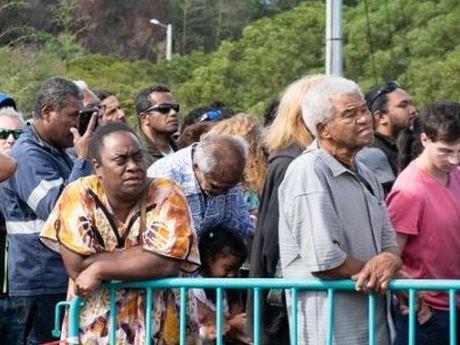France Key Elections: A Defining Moment
France is at a crossroads, with the nation voting in crucial runoff elections that could bring about a historic shift in the political landscape. On July 7, voters flocked to the polls, faced with a stark choice that could result in either the far-right National Rally, led by Marine Le Pen, seizing power, or a hung parliament that could lead to prolonged political uncertainty.
High Stakes: Potential for Far-Right Ascendancy
The current elections are of paramount importance, given the significant gains made by the far-right National Rally in the June 9 European elections. This surge prompted President Emmanuel Macron to call for snap elections, betting on the hope that French voters would once again reject the far-right party’s inward-looking, anti-immigrant stance. However, the gamble is fraught with risks as Marine Le Pen’s party stands on the brink of an unprecedented victory.
Impact on Global Diplomacy and Domestic Policy
The implications of these elections extend far beyond France’s borders. The outcome will influence global diplomacy, the war in Ukraine, and Europe’s economic stability. A victory for the National Rally could undermine President Macron’s pro-European Union stance and his efforts to position France as a leader in international diplomacy and economic reform.
Rising Tensions: Campaign Marred by Violence and Controversy
The election campaign has been marked by heightened tensions, with incidents of racism, antisemitism, and even physical attacks on more than 50 candidates. These are highly unusual occurrences in French politics, prompting the deployment of 30,000 police officers on voting day to ensure safety and order.
A Historic Summer: France on the Global Stage
This election period coincides with a particularly momentous summer for France. Paris is set to host the Olympic Games, the national football team has reached the semi-finals of the Euro 2024 championship, and the Tour de France is in full swing. Amidst these celebrations, the political stakes have never been higher, with 49 million voters participating in one of the most critical elections in decades.
Potential Outcomes: Far-Right Government or Political Deadlock
The possibility of the National Rally winning an absolute majority in the National Assembly is a scenario that hasn’t been seen since the Nazi occupation of World War II. If Marine Le Pen’s party secures the majority, Jordan Bardella, the party’s 28-year-old leader, could become the next Prime Minister. This would represent a seismic shift in French politics, given the party’s controversial history and far-right policies.
Uncertain Future: Polls and Projections
Polls suggest that while the National Rally may win the most seats in the 577-seat National Assembly, it could fall short of the 289 seats needed for an outright majority. This outcome would still be historic, as it would elevate a party long seen as a pariah to the forefront of French politics. In such a scenario, Macron would be forced to share power in a cohabitation arrangement, or potentially pursue coalition negotiations with center-left parties or form a technocratic government.
Voter Discontent: National Rally’s Grassroots Appeal
The National Rally’s rise is fueled by widespread voter dissatisfaction, particularly in small towns and rural areas. Many voters are frustrated with low incomes and perceive the Parisian political elite as out of touch with their struggles. The National Rally has successfully tapped into these sentiments, often by attributing France’s problems to immigration and building a broad base of support over the past decade.
Shifting Policies: National Rally’s Strategy for Electability
Marine Le Pen has strategically softened many of the National Rally’s positions to make the party more palatable to a broader electorate. While the party no longer calls for leaving NATO and the EU, its core far-right values remain unchanged. The National Rally advocates for a referendum on citizenship, curbing the rights of dual citizens, and giving police more freedom to use weapons.
Overseas Territories: A Global Voting Effort
The second-round voting began on July 6 in France’s overseas territories, spanning the South Pacific, the Caribbean, the Indian Ocean, and the North Atlantic. The elections will conclude at 8 p.m. local time (1800 GMT) in mainland France on July 7. Initial polling projections are expected on Sunday night, with early official results anticipated late Sunday and early Monday.
Macron’s Resolve: Leadership Amidst Uncertainty
Regardless of the election outcome, President Macron has stated unequivocally that he will not step down and intends to complete his term, which ends in 2027. This steadfast position underscores his commitment to navigating France through this tumultuous period, whether it involves sharing power in a coalition or managing a hung parliament.
Summary: Key Learning Points
| Key Points | Details |
|---|---|
| Significance of Elections | Potential far-right victory or hung parliament |
| Global Impact | Influences on Ukraine war, global diplomacy, and Europe’s economic stability |
| Election Campaign Issues | Marred by violence, racism, antisemitism, and physical attacks |
| National Rally’s Surge | Historic gains and potential to lead France |
| Macron’s Challenges | Navigating coalition governments and maintaining leadership |
| Voter Discontent | Frustration with low incomes and perceived elitism |
| National Rally’s Strategy | Softening positions to increase electability while maintaining core values |
| Overseas Voting | Comprehensive voting effort in France’s overseas territories |
Soumya Smruti Sahoo is a seasoned journalist with extensive experience in both international and Indian news writing. With a sharp analytical mind and a dedication to uncovering the truth, Soumya has built a reputation for delivering in-depth, well-researched articles that provide readers with a clear understanding of complex global and domestic issues. Her work reflects a deep commitment to journalistic integrity, making her a trusted source for accurate and insightful news coverage.



